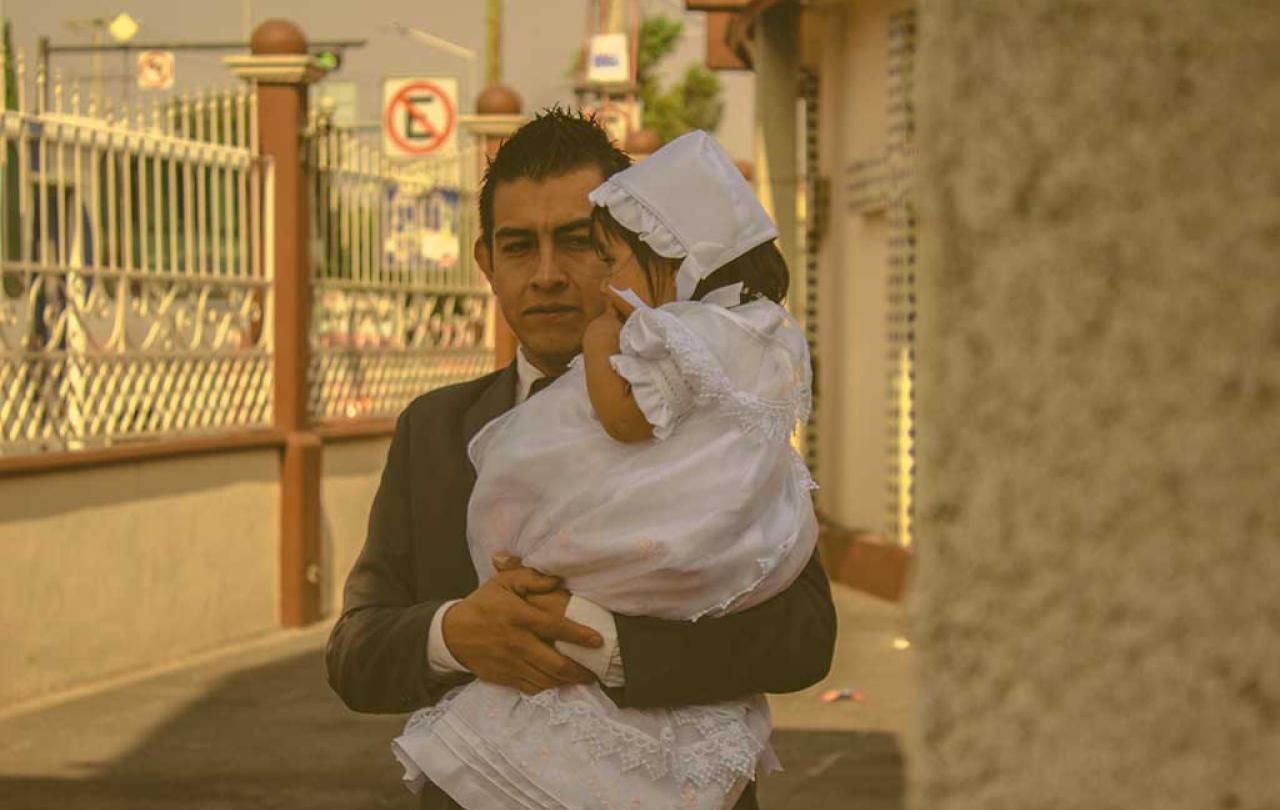
Christians today are baptized – often christened as babies – as part of an ancient entry rite into the church. Some of you reading this were probably christened, or have attended christenings, as a conventional rite of passage. But eighteen centuries ago, joining a church was not for the faint of heart. Baptisms happened at Easter, often in secret, and only after a semi-Olympic training of three years in order to be allowed into its secret membership. Every aspect of preparation was vital – almost brutal – aimed at the spiritual survival (certainly not bodily survival) of the church and its members. This was no pinky handshake. Why would people want to join at all? This was an ordeal which, if one passed, meant public shame at best and lions if the wrong emperor reigned.
First there was the obstacle of finding one. Churches were secret, often hidden in remote underground catacombs, and undetected by officials. Those who risked their lives to bring ‘candidates’ for membership into their secret fellowship had to vouch for character because betrayal could mean death for all gathered. (Enter the first 'godparents' into the rites of the church).
Second, one’s profession could mean disqualification: if a gladiator, prostitute, or actor was seeking admission, they would be given three years to stop their vocation – and begin caring for the poor, the orphans, and the widows of the city. Within these years, they were only allowed to hover on the outer threshold of the church, increasing desire for the more classified rite of the eucharist. Stock items such as the Lord’s Prayer and the Creed were kept strictly confidential until the week prior to baptism (never written – only memorized), lest they be handed out too early to those who would later fall away.
All this was leading up to the clandestine rite of initiation – baptism – which occurred in the middle of the night, Easter eve. After fasting until sunset for 40 days (enter the modern practice of Lent), these candidates would undergo final questions during Holy Week. They took part in daily exorcisms, rejecting all darkness in their life, and culminating in the final renunciation: “I renounce you Satan, and all your works and all your empty promises.” An ancient description of bling.
They were also examined by the local bishop for whether their lives were characterized by social justice: were they caring for the sick? were they living according to an obsolescent class system or into their new reality as equals? were they treating their bodies as temples of God? As one fourth-century bishop exhorted in the middle of Easter night, “why do you stand there, different in race, age, sex, and rank, who will soon be one?” Baptism was the great leveler, like death.
And die they did. Earliest baptisms were held in secret, but as Christianity was sporadically tolerated, people were baptized in mausoleums – Roman funerary buildings, to communicate very loudly: you are coming here to die. These primitive structures continue to be unearthed all over Europe, every time a new underground route is being laid, or a skyscraper is being dug. And the foundations tell all: large fonts to walk down into, shaped like crosses, octagons, or even wombs. Here you go down to die, and be reborn. Archaeology reveals hooks on walls for cast off clothing, for the candidates were to become like newborn infants again. Plunged into the waters three times, they emerged naked and were clothed in white – a symbol of overcoming suffering and of primal innocence. In this upside-down society, one went into the water having been classes as a Competent One (competentes) but was upgraded after baptism to the nickname of Infant (infantes) – even higher praise. And the reward? Finally, being admitted past the gate (origination of the church ‘narthex’) into the sanctuary itself, to take part in its contraband banquet: the bread and wine.
Modern day christenings might appear fairly benign on the surface, but they still bear vestiges of this older, more perilous rite. We have godparents, white garments, and a triple splash of water. The Book of Common Prayer still requires parents and godparents to renounce Satan on behalf of the baby, that supposed figment of our imagination. And although we have lost much of the symbolism of death and rebirth, one thing hasn’t changed: this adorable baby will still die. For the ancients, one’s death was merely the completion of baptism, in which one had already begun the art and process of learning to die. Baptism didn’t keep one from death, but baptism “baptized” death and allowed one to get on with living.





